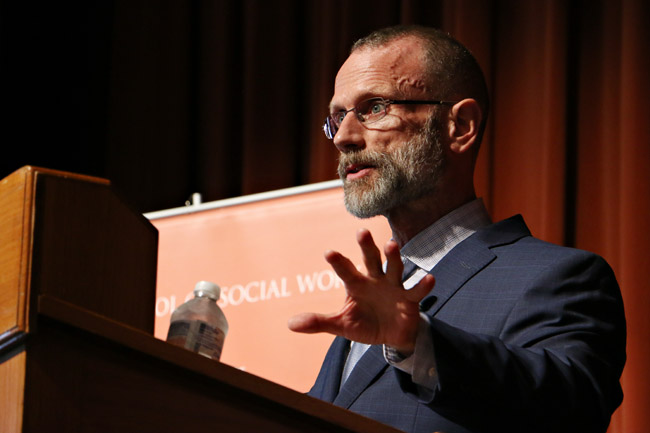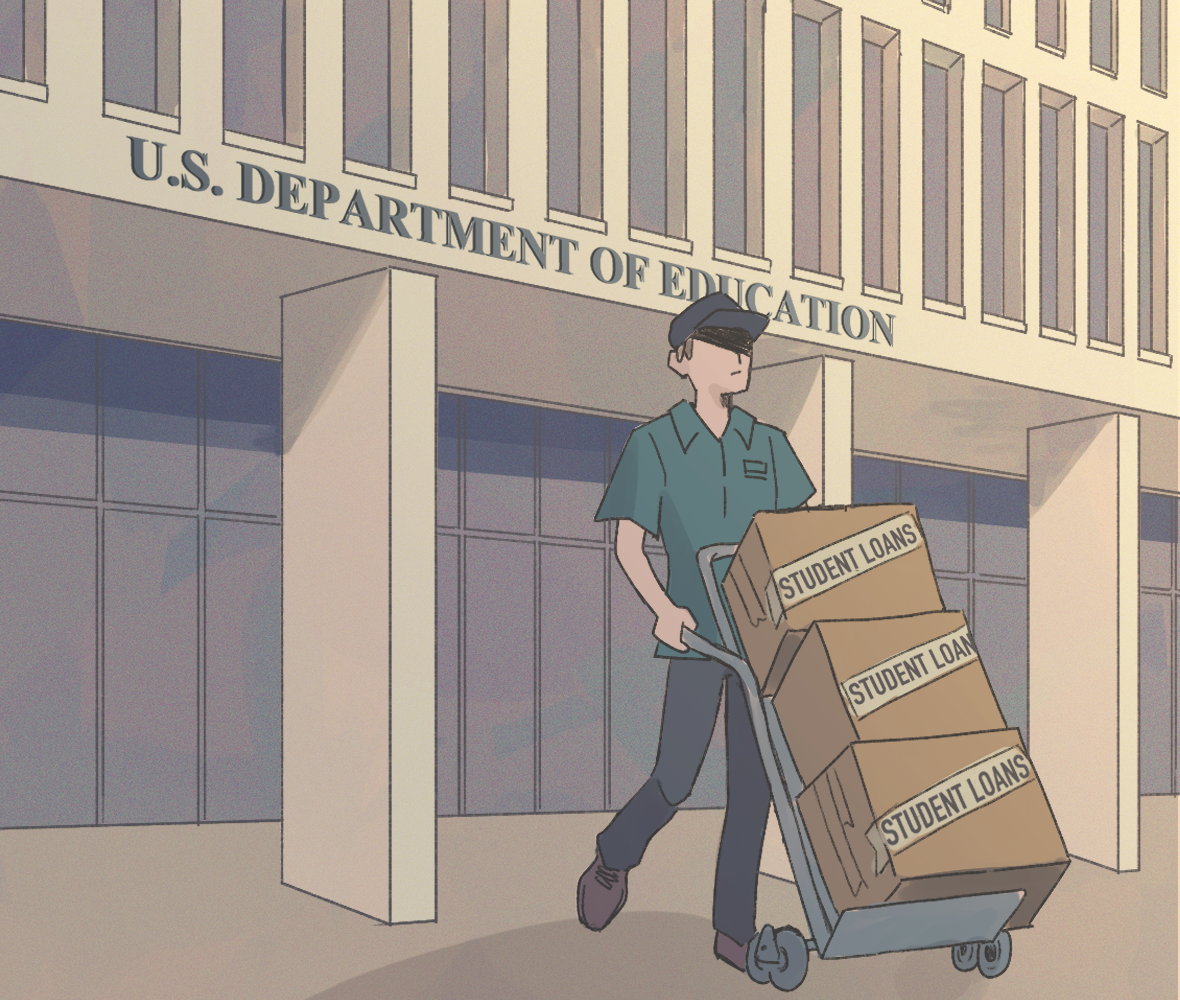Gilbert Cole, psychoanalyst and author of “Infecting the Treatment: Being an HIV-Positive Analyst,” spoke at the annual Sue Fairbanks Lecture in Psychoanalytic Knowledge on Friday and discussed how social workers can use psychoanalysis to become more aware of clients and how they think in emergency situations.
According to the American Psychoanalytic Association, psychoanalysis is both a theory about human behavior and a method of treatment for psychological problems and difficulties in living a successful life. Treatment involves a therapeutic session where the patient and analyst build a close, trusting relationship. Patients are encouraged to talk about themselves in an open and free manner. This enables patients to experience parts of themselves they has never experienced due to guilt, embarrassment or pain.
“I think of psychoanalytic work as requiring all that an emergency removes from a scene,” Cole said.
Cole focused his discussion on psychoanalysis and how it applies to the social work profession. He said the treatment of clients’ emergencies — emotional or physical — must be approached without a sense of eagerness.
“How does a person withstand being addressed to ought to do something about an emergency?” Cole said. “I find that really hard.”
Cole said that in light of a crisis, workers must not intervene with patients immediately. Analysts must take into consideration their entire story and listen to their problems.
“Psychoanalytic thought has been leaving the schools of social work around the country,” said Sue Fairbanks, who is a UT alumna, social work therapist and benefactor of the lecture series.
Fairbanks said psychoanalysis can be related to crisis intervention such as in cases of troubled children, psychiatric patients and prisoners.
“The more deeply we can understand what got them there, I think we can be more helpful to them in a way that they really need,” Fairbanks said.
According to Fairbanks, the lecture series started in 2009 to promote aspects of the field of social work. She said analysts must resist the sense of urgency that arises from a client’s desperation in an emotional emergency.
“They want you to do something, so you get this urge that you have to do something right away,” Fairbanks said. “What we need to do, in often times, is take a step back and listen to their story. Then, we can really intervene more appropriately.”
Zully Paulin, a social work graduate student, said Cole’s lecture could be related to her field of trauma informed care.
“I think recognizing the perspective of somebody who is in crisis is important,” Paulin said. “As a practitioner, having that awareness can be essential.”





















